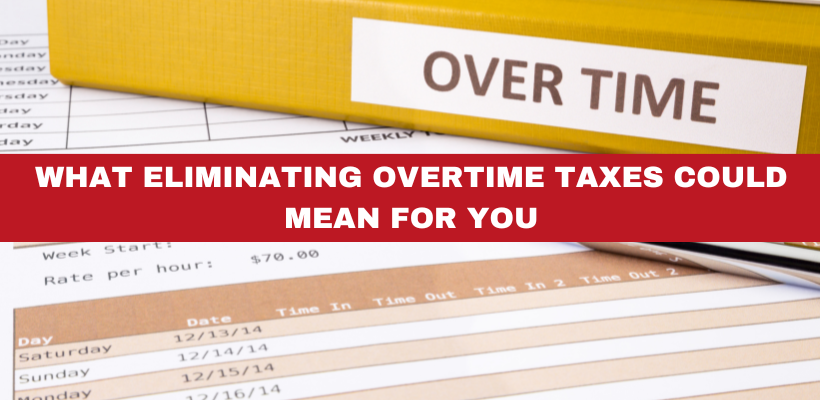One of President Trump’s 2025 tax proposals is to eliminate taxes on overtime pay, aiming to provide relief to workers who take on extra hours. But how are overtime earnings currently taxed, and how could removing these taxes impact workers?
How is Overtime Pay taxed?
Overtime pay is taxed just like regular wages, meaning it is subject to federal income tax, Social Security tax, and Medicare tax. The key difference is that overtime pay is typically higher than regular hourly wages. It is at least 1.5 times the employee’s normal rate, as required by federal labor laws.
Since overtime earnings are counted as part of total taxable income, earning too much overtime can push workers into a higher tax bracket, which may increase their overall tax liability.
How can Overtime Pay affect tax brackets?
The U.S. tax system uses a progressive tax structure, meaning that higher income levels are taxed at higher rates. However, moving into a higher tax bracket does not mean all earnings are taxed at that higher rate. Rather, it is only the portion that exceeds the bracket threshold.
For example, if a worker’s base salary is $45,000 and they earn an additional $10,000 in overtime, their total taxable income rises to $55,000. If this pushes them into the next tax bracket, only the income exceeding the lower bracket threshold is taxed at the higher rate.
While moving into a higher tax bracket does not mean losing money, it does mean a larger portion of earnings goes toward taxes, which can reduce take-home pay.
What could eliminating Overtime Taxes mean?
If President Trump’s proposal is implemented, workers would receive 100% of their overtime pay without any federal income tax deductions. This change could provide higher take-home pay for those who work additional hours and reduce concerns about overtime earnings pushing workers into higher tax brackets.
However, the details of the proposal, such as whether Social Security and Medicare taxes would also be eliminated on overtime pay, are still unclear. The final impact would depend on how the plan is structured and whether it is approved by Congress.
Final Thoughts
Under current tax laws, overtime pay is taxed as regular income, and significant overtime earnings can move workers into a higher tax bracket. The proposed elimination of overtime taxes aims to provide relief by allowing workers to keep more of their earnings. As this proposal develops, taxpayers should keep themselves informed about potential changes and how they may affect their income.







 Steven N. Klitzner, P.A. is a tax attorney based in Miami, Florida. He has been practicing tax law for over 40 years, and currently holds a 10.0 rating by Avvo. Mr. Klitzner was appointed to the IRS Service Advisory Council in 2021 and is...
Steven N. Klitzner, P.A. is a tax attorney based in Miami, Florida. He has been practicing tax law for over 40 years, and currently holds a 10.0 rating by Avvo. Mr. Klitzner was appointed to the IRS Service Advisory Council in 2021 and is... 





